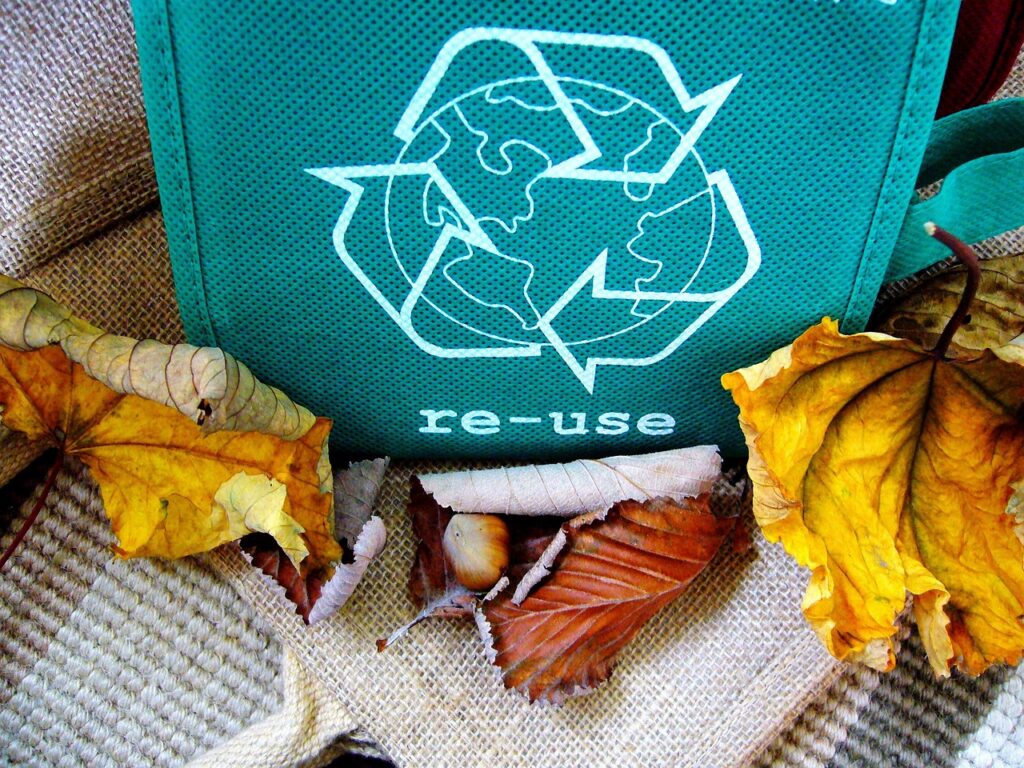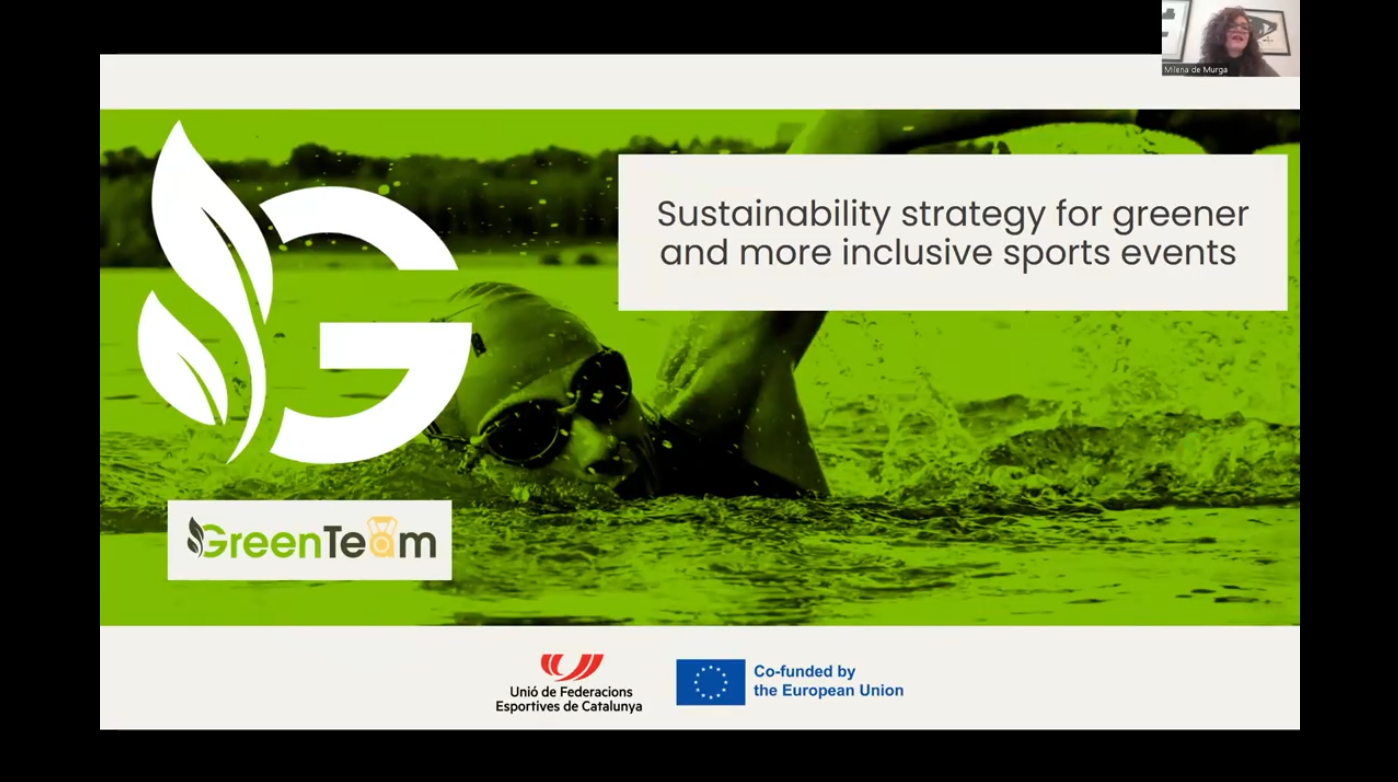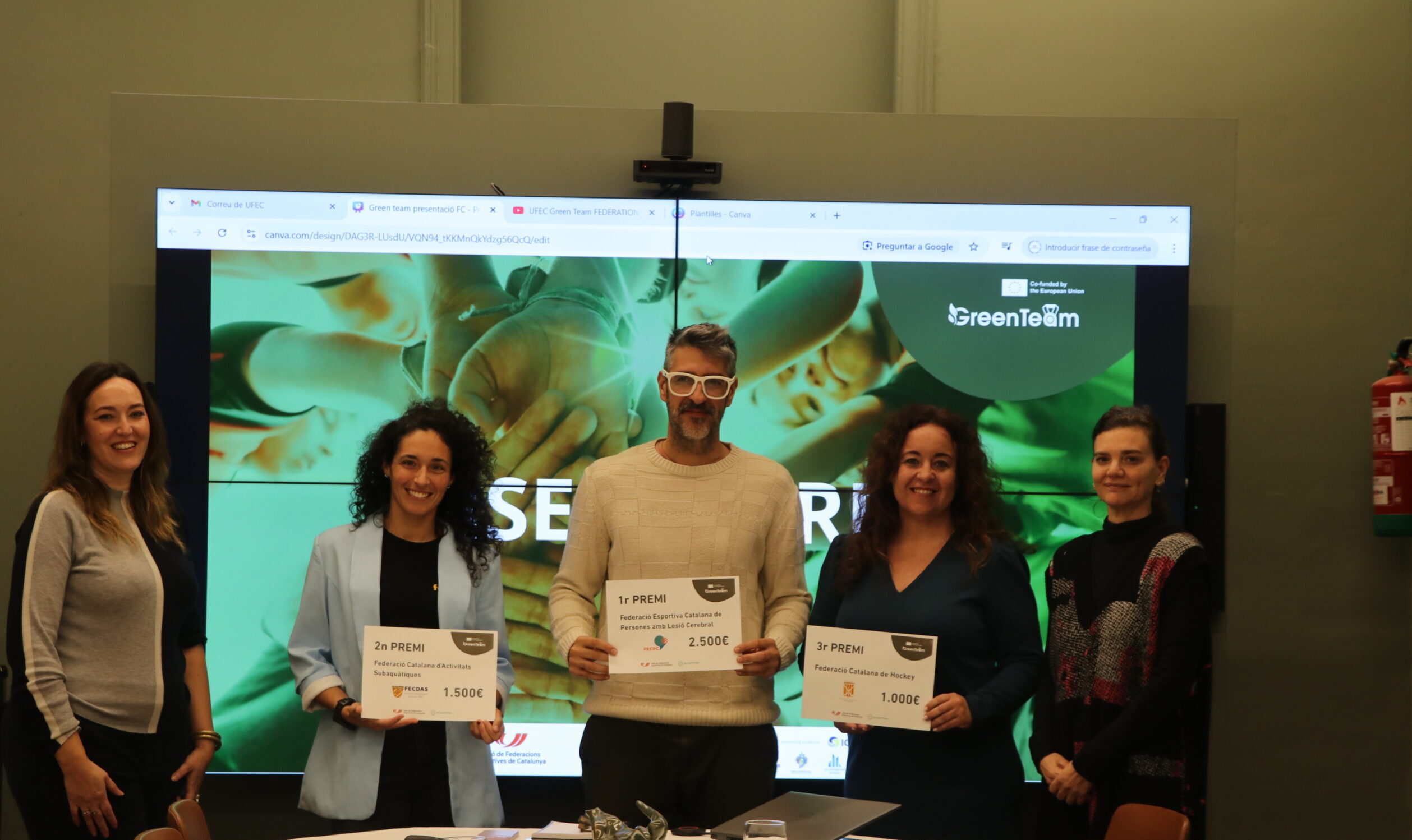To foster sustainable and inclusive sporting events
In the world where sporting events are a norm, given high appeal for the competitions, attracting interest in the athletes and audiences, there is also a rising concern of their environmental impact voiced not only by organizers, but also spectators and residents of affected areas, as well politicians and institutional representatives of the host territories.

The organizers and federations are keen to have practical environmental goals, action plans etc. and more attempts can be seen to curb this issue, but it is never enough. One of the major hindrances is identification of unique problems and lack of exact knowledge to address the needs of the event organizers, tailored to the local issues and most importantly lack of resources for the smaller federations and events.
The GREEN TEAM project seeks to foster sustainable, inclusive sporting events and to encourage sports federations, administrations and companies in the sport sector to be more sustainable and inclusive when holding sporting events. It provides resources backed by research, including an e-Learning Course, designed to guide the sports federations, clubs and other event organizers through the principles and practices of organizing sustainable sports events.
Interview with Milena de Murga, creator and coordinator from UFEC and Prashant Kumar, project manager for the Green Team Project.
In light of the challenges of sustainable development, preserving the environment is a major concern. Can you tell us more about the current environmental context and how sport influences the environment?
The current environmental context is characterized by an urgent need to address the issues of climate change, resource depletion, and waste generation, especially e-waste generation. Sporting events often contribute to these problems through large scale energy consumption, intensive transportation demands, and significant waste generation.
On the other hand, they possess the immense potential to drive positive change by setting examples of sustainable practices. For instance, a well-managed event can demonstrate renewable energy usage, waste reduction, and sustainable transport options, inspiring both participants and spectators to adopt similar practices in their daily lives. Additionally, sports events have the power to reach a global audience, making them an effective platform to raise awareness and promote environmentally-friendly behaviors.

Today, the need for an ecological transition is essential. How can sports actors can contribute to this ecological transition (sustainable development practices, values transmitted through sport)?
Sports actors are uniquely positioned to contribute to the ecological transition by implementing sustainable practices across all aspects of sports event management. This includes using renewable energy sources, minimizing waste through recycling and composting, and promoting green transportation options like cycling and public transit. Furthermore, sports inherently promote values such as teamwork, respect, and fair play.
By embedding sustainability into these values, sports can inspire broader societal changes. For example, athletes and organizations can champion sustainability campaigns, promote the good practices on their social media, and hence encouraging fans and communities to adopt more environmentally friendly lifestyles. Through their visibility and influence, sports actors can be powerful advocates for ecological transition, motivating action both on and off the field.
Do you think the values of sport could help changing people’s mindset or lifestyle and how?

Absolutely, sports have a unique ability to shape mindsets and influence lifestyles. The values intrinsic to sports – such as discipline, respect, and teamwork – can be powerful tools in promoting a more sustainable way of living.
When sustainability becomes part of the sports narrative, it can inspire individuals and communities to adopt similar values in their daily lives. For instance, athletes who actively engage in environmental causes can influence fans to consider the environmental impact of their actions. Sports events that emphasize eco-friendly practices, like waste reduction and energy conservation, can set a precedent for fans, encouraging them to incorporate these practices into their routines. By demonstrating that sustainability and success can coexist, sports can drive a cultural shift towards more conscious living.
The Green Team project seeks to foster sustainable, inclusive sporting events. Can you tell us a bit more about?
The Green Team project aims to address the environmental and social challenges faced by sports events by providing a comprehensive framework for sustainability, designed for sports federations and clubs, especially for those without enough resources.
It introduces a sustainability seal, a certification that federations can earn by completing an online course and hosting a sustainable event. This seal not only recognizes but also incentivizes efforts toward eco-friendly practices.

The project’s e-learning course offers accessible, multilingual training on integrating sustainability into event planning and management. It covers practical steps tailored to the unique needs of different organizations, considering local contexts and resource limitations. In the coming phases of project, there will be training manuals created and distributed to the partner organization and sports federations, which will help further enhance the knowledge related to organizing sustainable and inclusive sports events.
By fostering collaboration among sports federations, companies, and administrations, the Green Team project seeks to create a culture of sustainability in sports, leading to more resilient and inclusive sporting communities.
How sports federations, administrations and companies in the sport sector can benefits from the project?
The Green Team project offers sports federations, administrations, and event organizers a valuable opportunity to enhance their sustainability practices through a structured and research-backed approach.
By participating in the e-learning course, they gain practical knowledge and tools to reduce their environmental impact while improving social inclusivity. The sustainability seal serves as a mark of their commitment, enhancing their credibility with stakeholders, sponsors, and fans.
Additionally, implementing sustainable practices can lead to cost savings, such as reduced energy and waste management costs. Organizations also benefit from the positive public image associated with eco-friendly and socially responsible practices.
The resources provided by the project, including handbooks, training materials and audiovisual materials, further support these organizations in achieving their sustainability goals, fostering a more sustainable sports sector overall.

Why are the project’s topics important to your organisation?
The Green Team project’s focus on sustainability and inclusivity aligns perfectly with UFEC’s mission and values. As a key stakeholder in the sports sector, not just for Catalunya but also for Europe, we recognize the responsibility to minimize the environmental impact of sporting events and promote social equality through sports, for both UFEC and all its member federations and partner organizations.
By engaging with the project’s resources and implementing its principles, we can set a standard for others in the industry. Addressing these topics is crucial not only for the future of sports but also for the well-being of our planet and communities.
Sustainability in sports is about ensuring that future generations can enjoy the benefits of sporting activities without compromising the health of our environment. Moreover, fostering inclusivity reflects our commitment to creating a sports culture that values diversity, fairness, and community engagement.
What is your motto?

We at UFEC and through the Green Team project, believe and are striving hard to live up to our motto of “Green sports for a greener future.“




